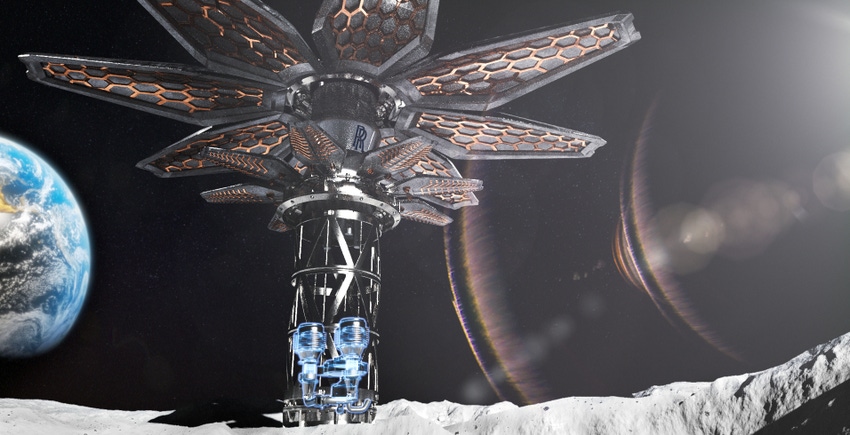UK government makes modest investment in space programmes
Science and Innovation Minister George Freeman has announced a £2 million investment across 13 space projects.
March 14, 2022

Science and Innovation Minister George Freeman has announced a £2 million investment across 13 space projects.
‘British space technology will help pioneer new approaches to energy, communications and resources’ states a release from the UK Space Agency today, in which it unveiled the £2 million government investment which will be split across 13 new projects.
The projects themselves are certainly grand in scale and include resource tracking robots for the moon, new comms tools for astronauts, and a power station for space, all of which are being worked on in the UK. We’ve extracted the full list below:
The Power to Explore – Rolls-Royce Space Reactor Programme (£249,000)
Plasma Water Purification System for In Situ Resource (£100,000)
Advancing deep space communications technology to improve crew health and performance in exploration class missions (£100,000)
Moon-RISE: Moon Robotic Inspection (£222,000)
Augers Not Included: A new deep-drilling concept (£85,000)
Dynamic Radioisotope Power Conversion Technology Feasibility Study for Lunar Surface Applications (£50,000)
Radiation characterisation of infrared detectors for future Mars exploration (£91,000)
Development of a Deeply Throttleable Pintle Injector for Lander Applications (£194,000)
Developing In Situ Resource Utilisation Production Technology (DISRUPT) (£218,000)
Microwave Heating Demonstrator (MHD) payload –Develop hardware of 250W Microwave Generator and oxygen/water extraction subsystem (£174,000)
NEBULASS –Nuclear Energy research at Bangor University and Leicester for Advanced Space Systems (£50,000)
LEIA Hybrid Qualification (£421,000)
An architectural feasibility study for the Curation and Analysis Facility for Extra-terrestrial Samples (£40,000)
“As we celebrate British Science Week, I am pleased to announce this £2 million package to support 13 new projects for the UK’s brilliant scientists and engineers to help us take significant strides in space exploration and discovery,” said Science and Innovation Minister George Freeman. “In addition to discovery breakthroughs, these projects will also ensure that people here on Earth benefit from new technology, including micro-reactor technology with the potential to support our Net Zero commitments.”
Abi Clayton, Future Programmes Director at Rolls-Royce added: “The support of the UK Space Agency has been instrumental in enabling the continued progress of the Rolls-Royce Micro-Reactor development programme. This shows the true value of public and private partnership as we bring together the space domain experience of the UK Space Agency with our own unique nuclear expertise. Together we can achieve ambitious technological firsts for the UK as we develop the power systems of the future.”
It’s always good to see UK success stories in cutting edge technology and space exploration, but in reality the sort of sums being banded about here are hardly likely to move the needle when weighed against the soaring ambition of the projects. By way of comparison the construction of the new Elizabeth Line on the London Underground, which is getting tested this month, apparently cost £18 billion. And that just makes it as far as Reading – when developing tools to revolutionise nuclear fuel technology for travel across the stars, £50,000 will presumably not touch the sides.
Still, every little helps.
About the Author(s)
You May Also Like








.png?width=300&auto=webp&quality=80&disable=upscale)


_1.jpg?width=300&auto=webp&quality=80&disable=upscale)


.png?width=800&auto=webp&quality=80&disable=upscale)